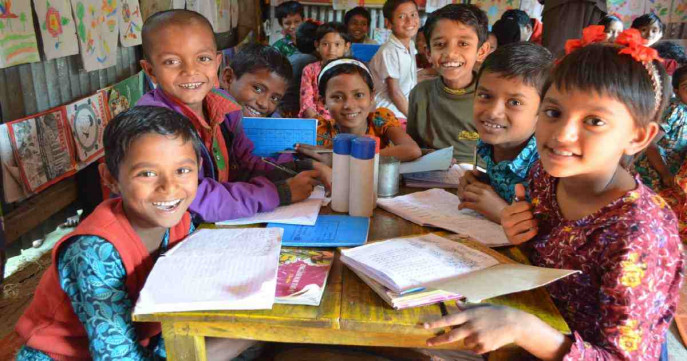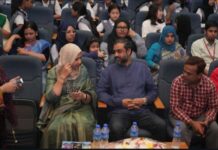The world’s sacred land is currently marked by chaos and unrest. My prayers for global humanity surround me, allowing me to dream of a harmonious future for my beloved people in Bangladesh—a future filled with love and trust. Envisioning days waking up to these dreams, especially with the young boys and girls of Bangladesh, brings hope. Those who excel in class, study diligently, and balance home responsibilities are esteemed, performing well in exams year after year, and are cherished in schools, colleges, and universities.
On the flip side, some may struggle with tension, barely making it to university, concluding their student life with frustration and regrets. They undergo varied experiences within the same society, emphasizing the concept of the “school of society.” Unfortunately, neglected students, despite possessing talents beyond academic achievements, often lack the courage to express them, even to parents or friends.
At times, academically gifted students may become successful doctors or engineers. Conversely, overlooked students may resort to small jobs or even turn to politics when they can’t find other opportunities, never becoming positive assets in society’s eyes.
From the outset, they know they won’t receive expected feedback for their efforts, leading to a mindset of “losing is not an option” and the belief that if they’re not doing everything, it’s all for nothing.
On the backbench in school or college, one can find that student who later becomes a minister, industry owner, or clinic owner, earning a substantial amount of money and providing opportunities. One day, the owner of a modern clinic told a doctor, “Listen, Dr. Babu, you’re doing well here with a good salary. If you can’t bring in the money, then keeping you employed won’t be possible.” The doctor asked, “What should I do?” The owner replied with an example of 30 delivery patients in the past month, explaining that if they performed cesarean sections instead of normal deliveries, all the clinic’s equipment, from nurses to everyone else, would be fully utilized. The investment pays off, and along with your salary, you get some extra benefits. Understanding the doctor’s role is not a matter of not understanding any reason.
Those who combine lifelong academic knowledge with business understand that two plus two equals four. Therefore, medical facilities have now started opening slaughterhouses to please the owner. In this situation, can the doctor-patient relationship ever be genuinely empathetic? The owner gains financial profit, the patient gains a profit of disdain, and the doctor gains a thoughtless new life. Always contemplating why not join the police or administrative cadre? What did I achieve by studying? What benefit is there in being a good student throughout life?
Who is responsible for this? Society, state, poverty, corruption, erosion of moral values, lack of integrity in the system, or is it a combination of everything? Instead of judging who excels or fails in education from the beginning of a citizen’s life, let everyone emphasize the importance of individual thoughts and consciousness from their own place. Help them grow with respect and reduce the differences among each other. In society, the significance of each task is inseparable. Mutual understanding is a must. Pay attention to those who may be neglected from an early age. An indifferent citizen does not hesitate to engage in unethical activities to strengthen their existence because awareness of ethics was never part of their life dictionary from childhood. If we strive to reduce societal disparities, bridge the gap between the rich and the poor, and develop a mindset to sacrifice or let go, then everything is possible.
Success is not an accident. It is hard work, perseverance, learning, study, sacrifice, and, above all, love for what you do or are learning.
Author: Rahman Mridha, Former Director, Pfizer, Sweden.
Email: [email protected]
































